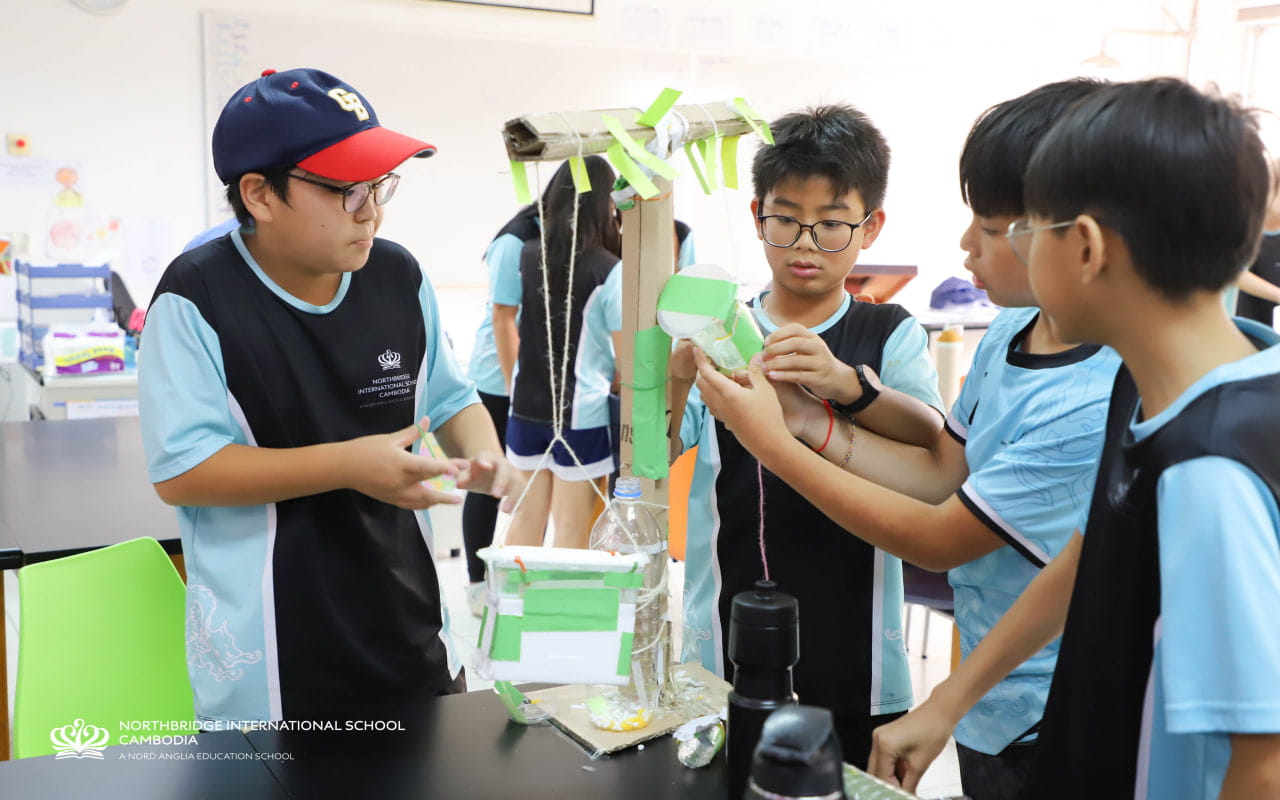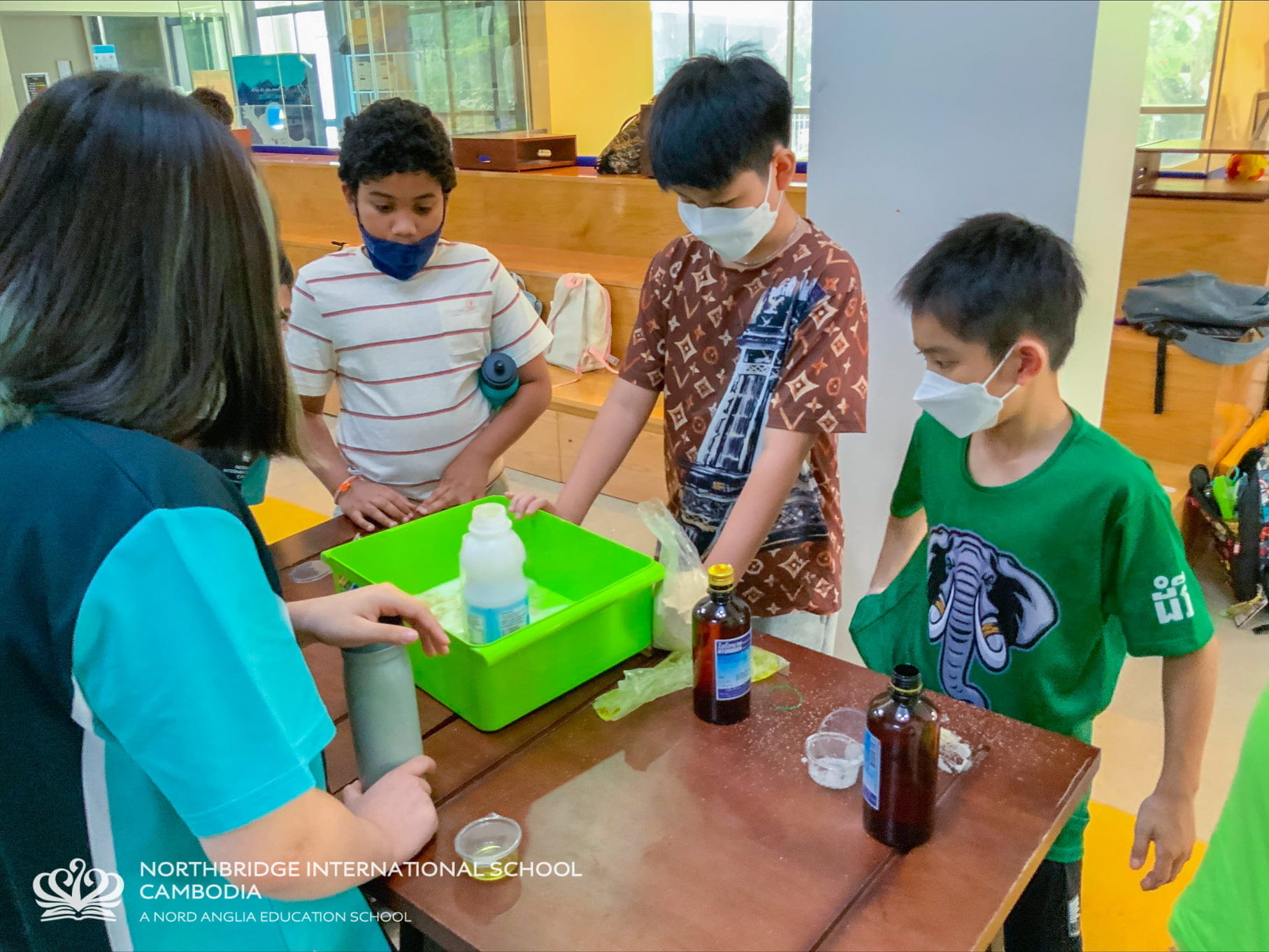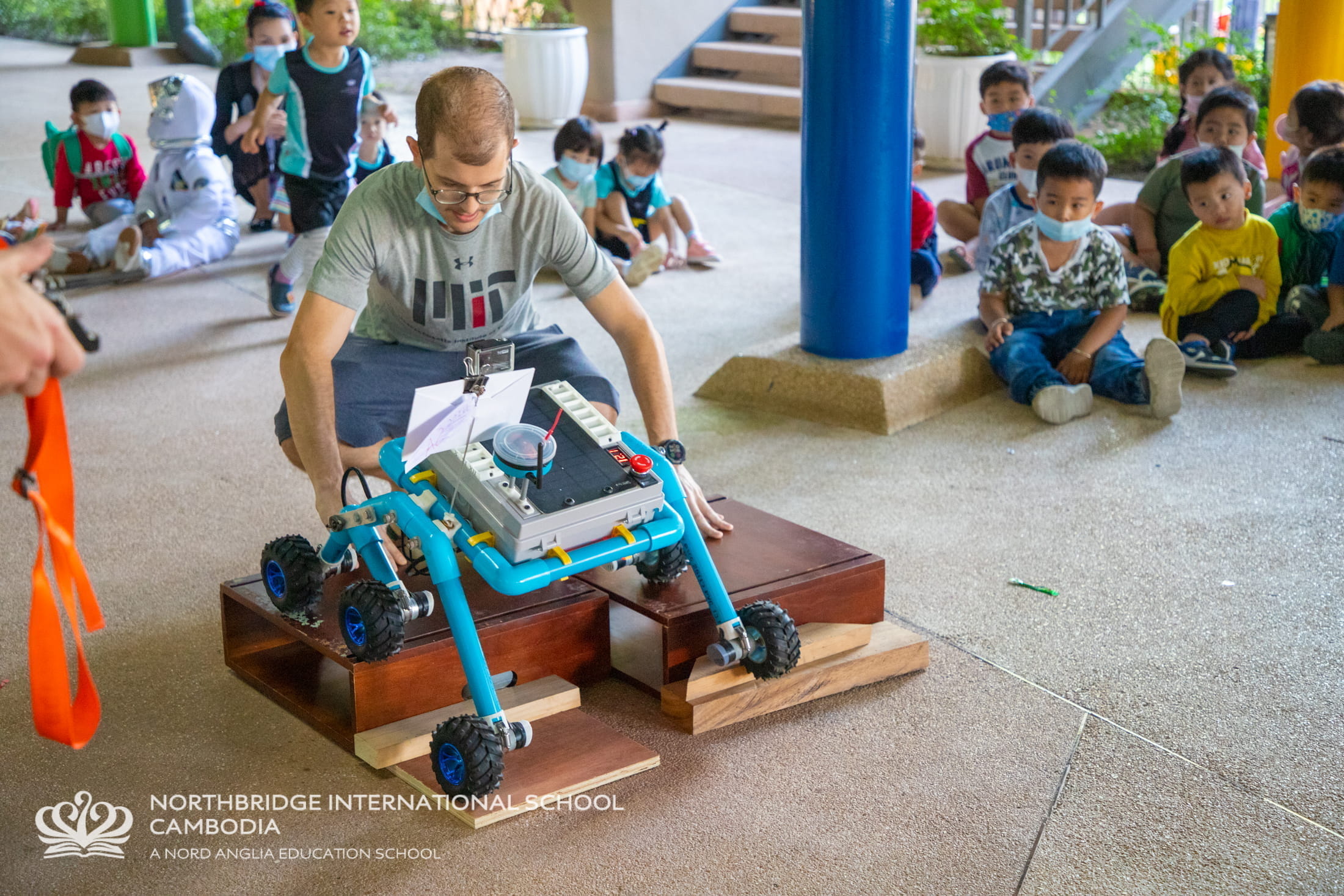How STEAM at Northbridge helps students learn skills they can use for the rest of their lives Making has become an important part of school culture at Northbridge International School Cambodia over the past few years. Not only is making an incredibly fun and satisfying activity that children love, but it promotes a myriad of meaningful skills that we believe will serve them well in life beyond school.
Making has become an important part of school culture at Northbridge International School Cambodia over the past few years. Not only is making an incredibly fun and satisfying activity that children love, but it promotes a myriad of meaningful skills that we believe will serve them well in life beyond school.
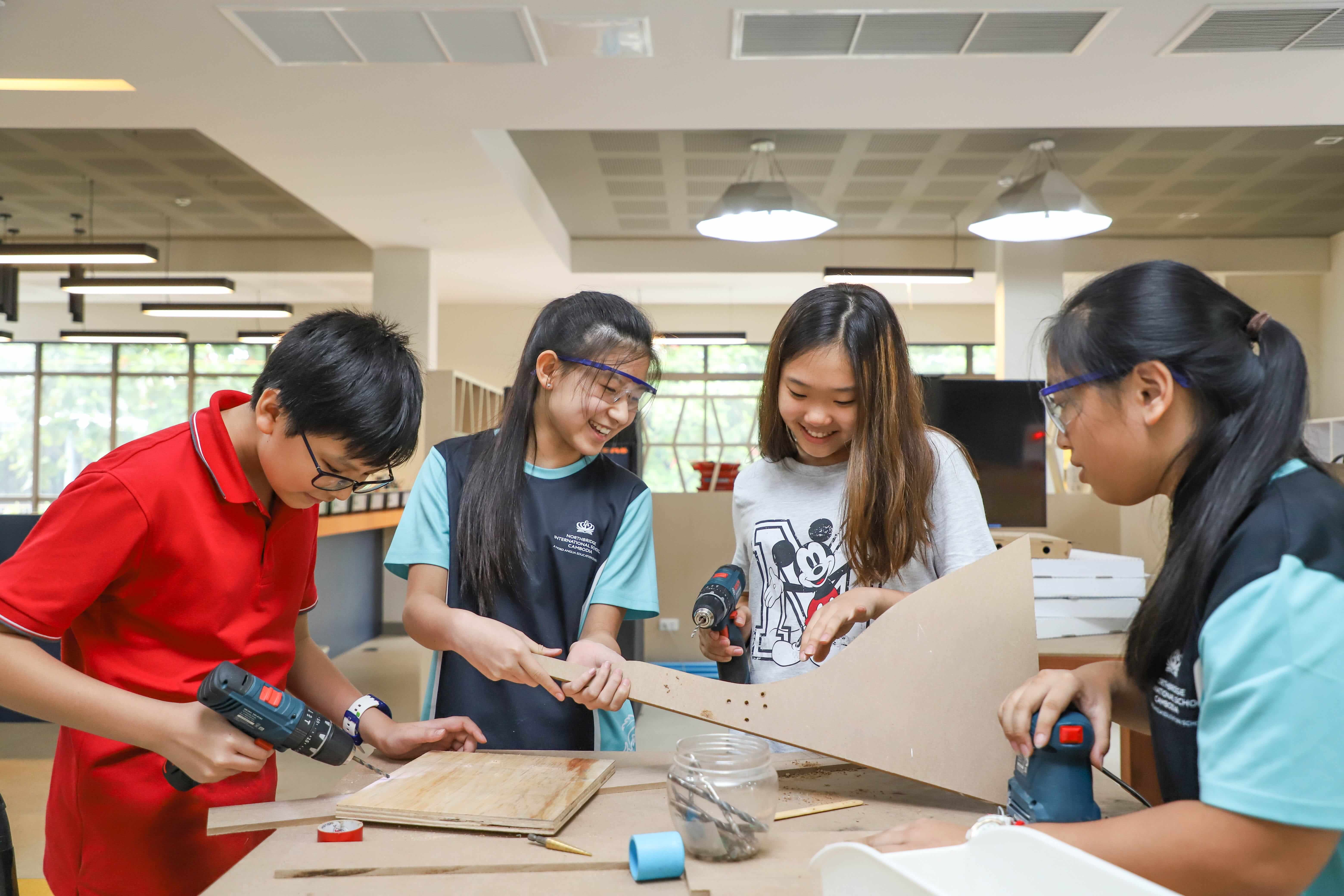
Making describes any activity where you are creating physical objects. In our Makerspace at Northbridge we have various facilities for making such as Robotics, Electronics, Soldering, 3D Printing, Laser Cutting and Coding.
But making doesn’t have to be high-tech, we also regularly engage students in making through sewing, embroidery, paper crafting, origami, cardboard construction, Lego, woodworking and more!
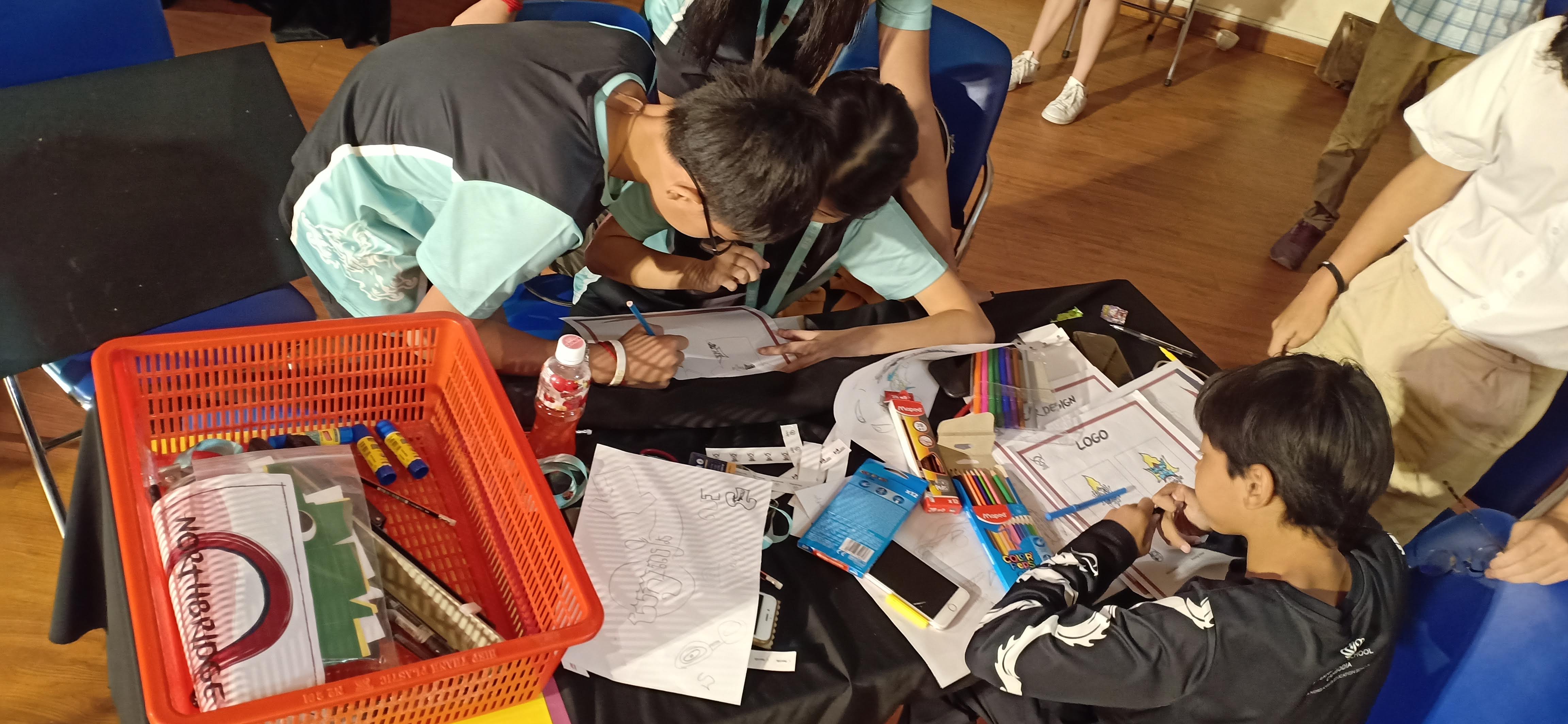
The idea is simply that you are using your hands to build something tangible.
These types of activities for young people have slowly been phased out of many schools and homes in favour of more strictly academic endeavours. Devices and screen-time are also regularly pointed to as culprits for the decline in hands-on activities.
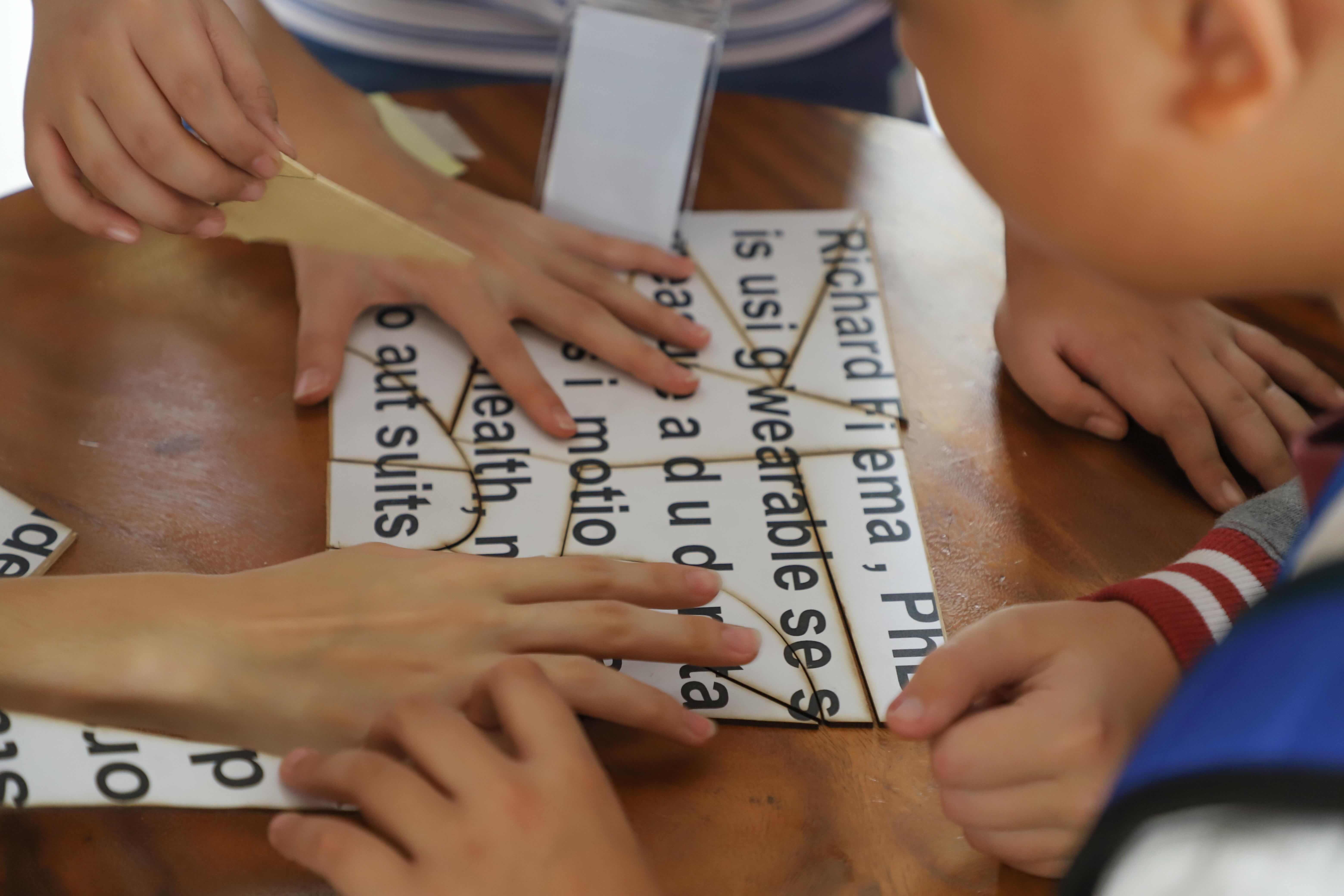
Mitch Resnick (MIT) relates in his book Lifelong Kindergarten, the case of a prominent Chinese university that noticed a trend in recent years of undergraduate students who, despite being academically successful, lacked essential problem-solving skills like creativity, planning, divergent thinking and resilience.
They determined the root was that those students were not given opportunities to take on meaningful making projects in school or at home, and focussed too much on academics and not enough time working on their own personal passion projects.
This provides further evidence to the idea that academics alone are not a reliable indicator of future success beyond school.
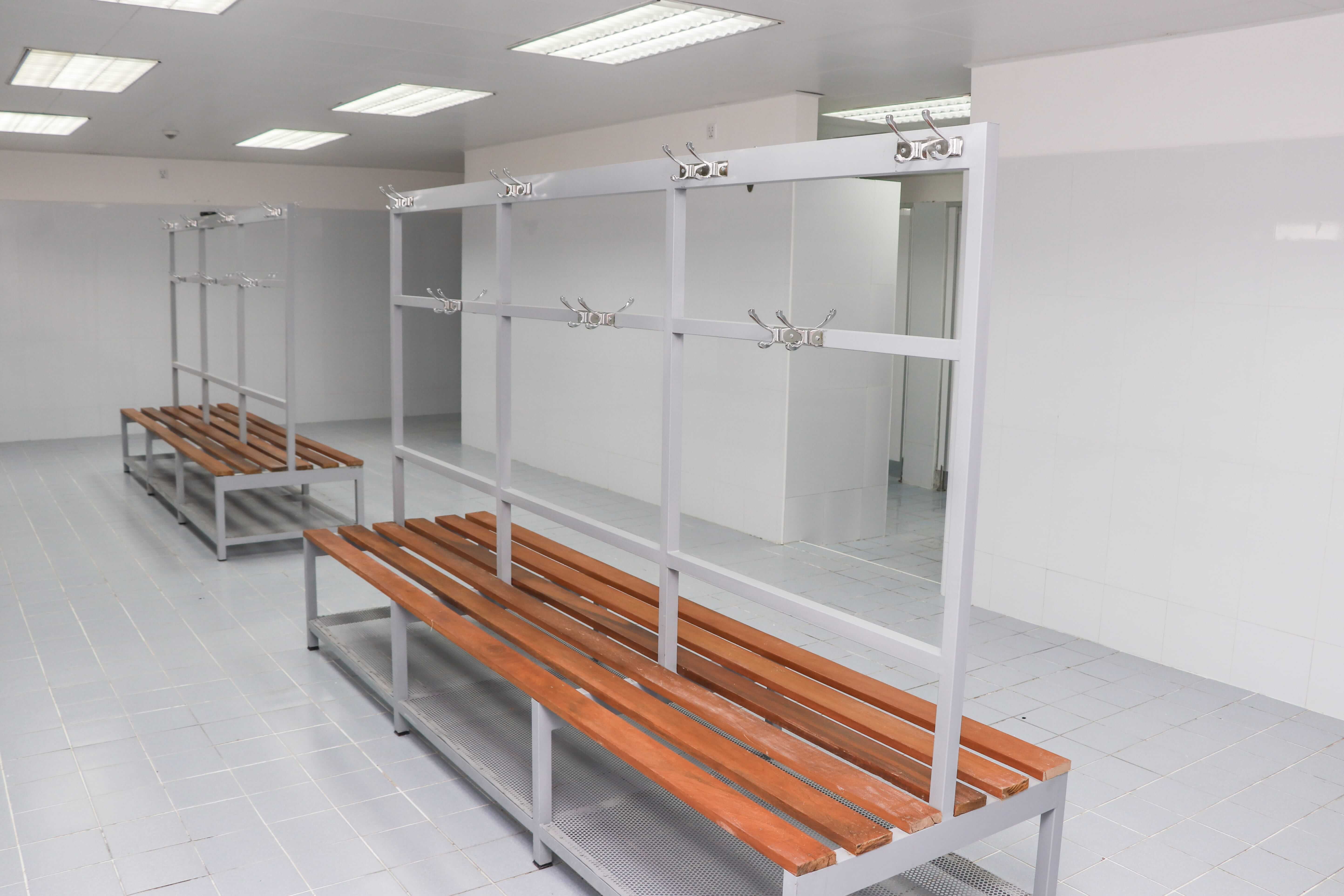
In the 1980s an MIT professor Seymour Papert developed the pedagogical approach of Constructionism.
Constructionism posits that students learn best when they can engage in hands-on learning and understand how things work for themselves through creative experimentation and tinkering.
In this model, the teacher’s role is not to “tell” things to the students but rather to facilitate opportunities for students to find out for themselves by “messing around” and making.
Essential to Constructionism is the hands-on aspect and the involvement of a physical object that can be created and manipulated. This helps students connect complex and abstract concepts to tangible and concrete objects that are more easily understood.
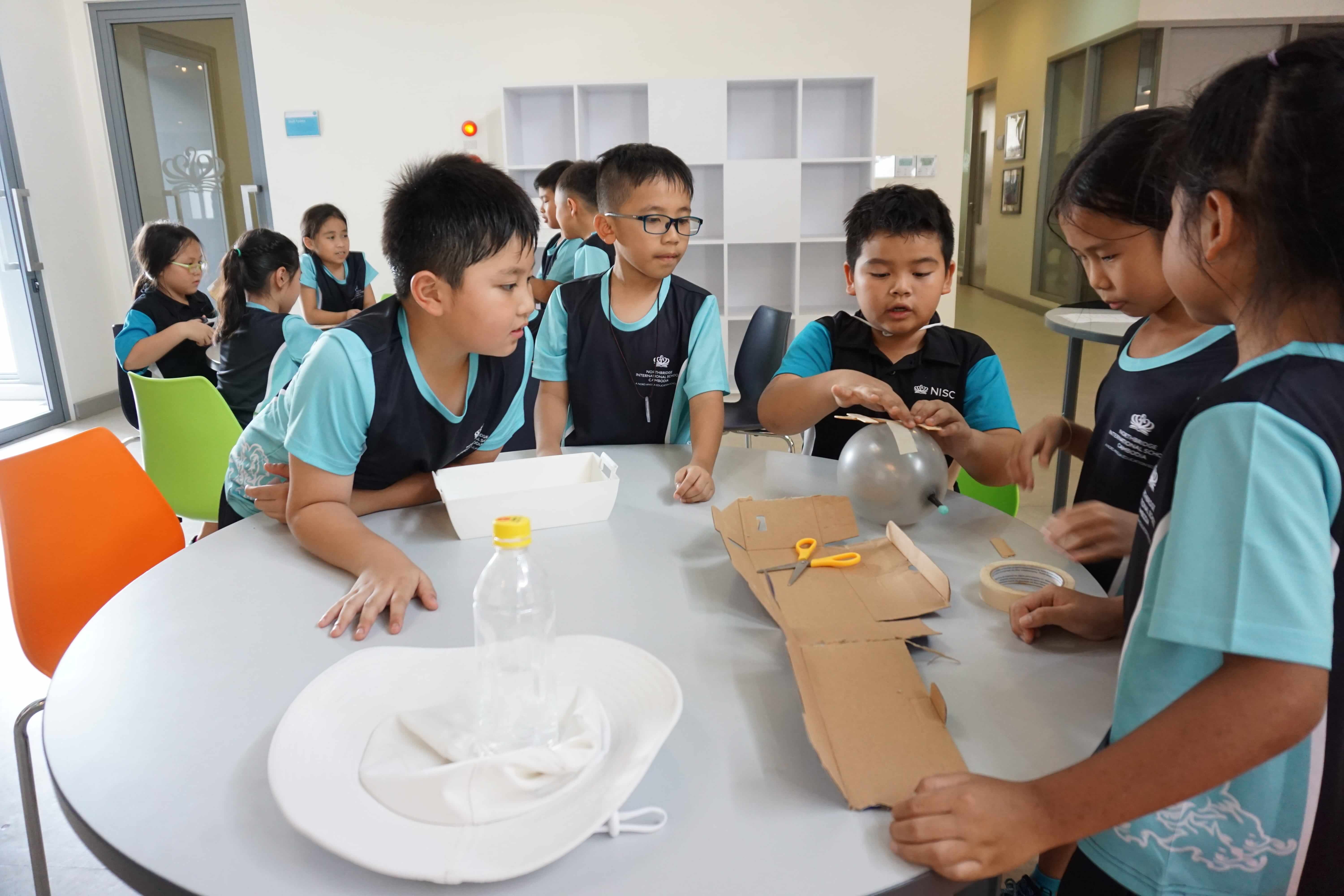
One of the best examples of Constructionism in practice can be seen in the current wave of sophisticated STEAM robotics kits like Lego Mindstorms and Vex Robotics.
These platforms allow students to learn complex coding and programming principles by interacting with a real-world object that they can build and create with their hands.
In previous generations, programming has had a reputation for being a tedious and difficult subject to learn because it involves a lot of complicated theory that is seemingly suited only to certain types of learners.
Hands-on learning and Constructionist principles have completely changed how students perceive coding and helped make it much more approachable for a wider variety of learners.

At Northbridge we hope to make a whole range of subjects and concepts more approachable to learners through Making.
In Grade 8 science, students demonstrate the basics of electricity and circuits by building their own working wire skill testers; Grade 6 Maths students discover mathematical patterns and exponents by building Tower of Hanoi puzzles; and Grade 2 students understand how simple machines work by constructing miniature teddy bear playgrounds.
Our teachers are constantly looking for ways to allow learners to access the curriculum through hands-on, making projects.
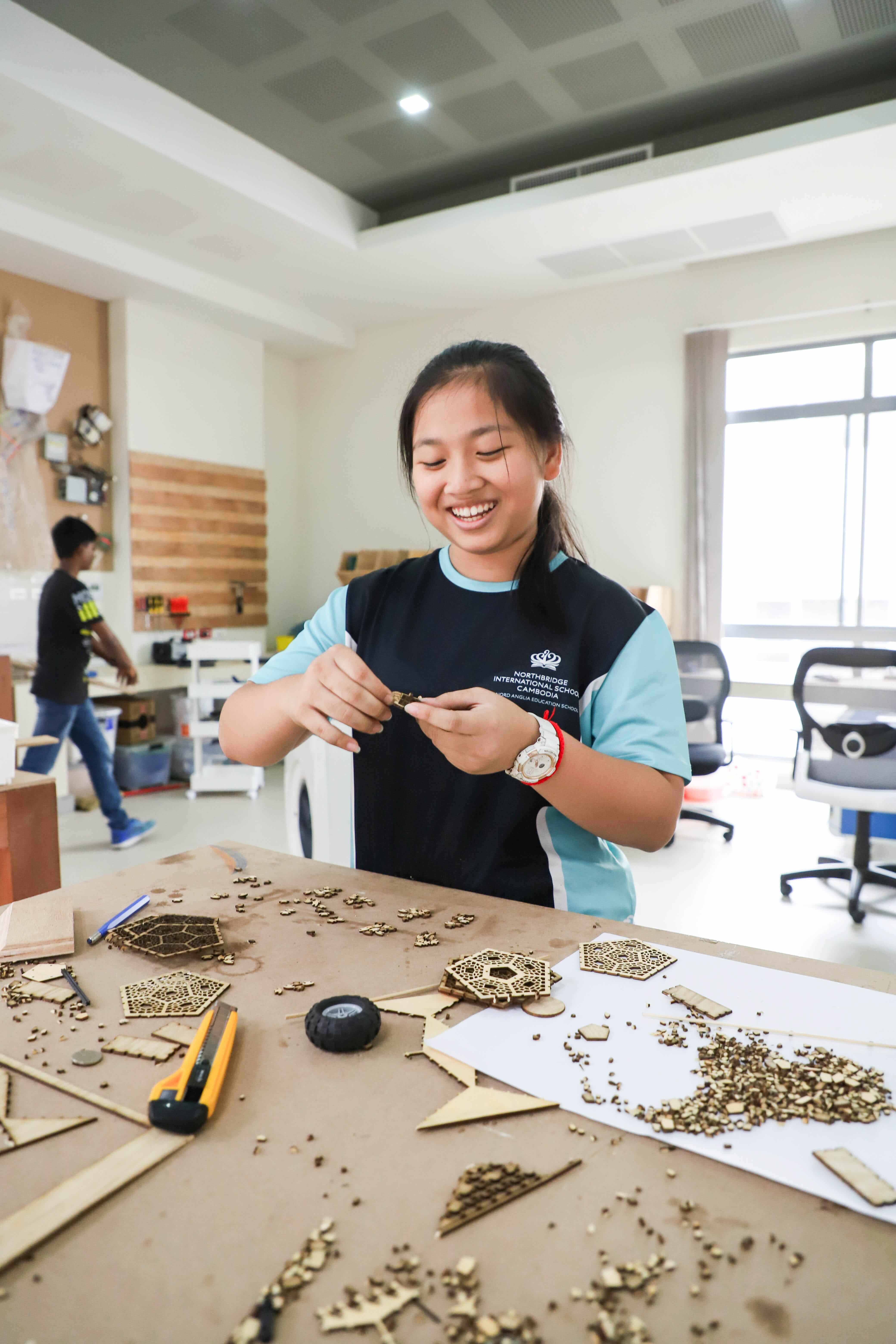
But making at Northbridge goes even further. It has turned out to be a popular hobby for students in their free time and after school. During recess and after school you will find student-makers busily working on their own passion projects in the Makerspace.
Some of the amazing projects that Northbridge students have pursued in their own time include arcade machines, desk organisers, laser-cut boomerangs, model aircraft, pendants and jewellery, Gundam models, lamps and way more!
There is something particularly special about seeing students take on these exciting projects when they are not connected to their “school work” and are just simply because they want to do something constructive.
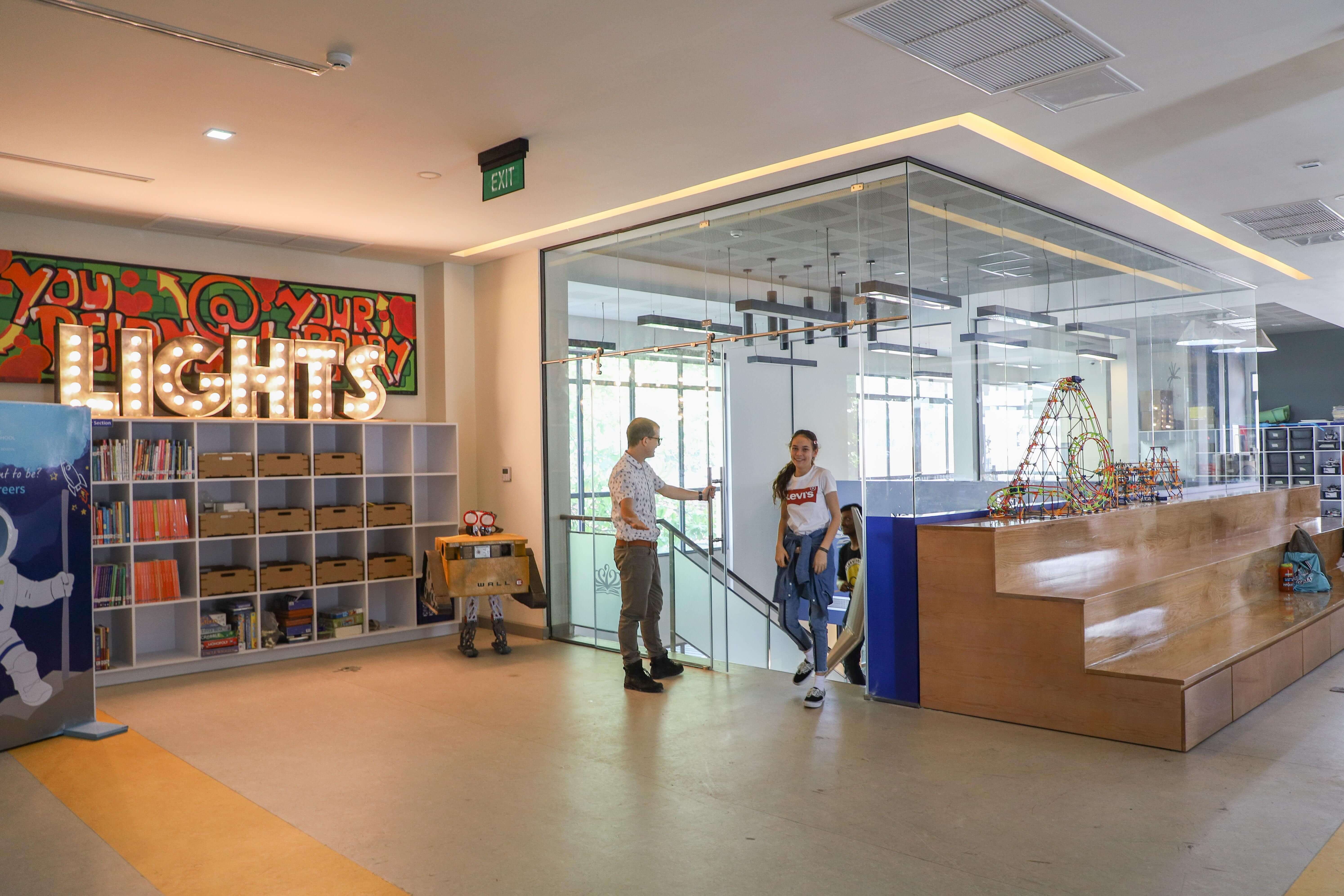
We encourage parents to look beyond a heavy focus on traditional academics and allow children opportunities to explore hands-on projects that interest them at home.
Instead of buying a new computer, why not let your child learn to build their own? If you’re moving house or changing rooms, let your child try redesigning their own bedroom! Or if some kind of problem arises around the home, ask your child to see if they can design a solution.
You can hear more about making by listening to Risky Business, a podcast by Northbridge teachers Mr Andy and Mr Jack. There is a recent episode all about the Maker Movement.












